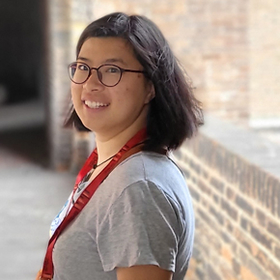

5-110 MCB
420 Washington Ave SE
Minneapolis, MN 55455
United States
United States
Pu
Wang
I conducted extensive investigations into the eco-evolutionary dynamics within collective microbial communities. This included the study of various microbial organisms such as Tetrahymena (protozoa), Pseudomonas (bacteria), and Kluyveromyces (yeast). I delved into microbial population genetics to unravel the underlying mechanisms of multicellularity.
Research statement
What is the origin of life? What drives diversity on Earth? I use an experimental evolution approach to address these questions. By studying the population genetics of lab-evolved microbial communities, I can reconstruct their evolutionary trajectories. I have used my microbial projects to develop teaching modules, allowing students to learn about genetics, cell biology, ecology, and evolution in a fun and immersive way. I am interested in using these non-simulated experimental modules to stimulate students’ fascination in biology, learn how to do science, and develop critical thinking skills.
Selected publications
P Wang and M Travisano. Rapid evolution of multicellularity in the haploid yeast Kluyveromyces lactis. (In prep)
P Wang, Y Choo, and M Travisano. Eco-evolutionary feedbacks promoted by hypermutation rate in a predator-prey microcosm. (In prep)
J Han, L Zhang, P Wang, et al. 2018. Heterogeneity of intron presence/absence in Olifantiella sp. (Bacillariophyta) contributes to the understanding of intron loss. Journal of phycology 54 (1), 105-113.
A Asem, P Wang and S Sun. 2018. Comparative phylogenetic perspectives on the evolutionary relationships in the brine shrimp Artemia Leach, 1819 (Crustacea: Anostraca) based on secondary structure of ITS1 gene. Journal of Genetic Resources 4 (2):72-84.
P Wang, et al. 2017. Further consideration on the phylogeny of ciliated protists: analyses using both mitochondrial and nuclear data with focus on the extremely confused class Phyllopharyngea. Molecular Phylogenetics and Evolution 112, 96-106.
J Han, L Zhang, P Wang, et al. 2017. Potential biodiesel-producing microalgae: two new strains of Amphikrikos sp. International Journal of Green Energy 14 (5), 454-462.
P Wang, et al. 2015. A case study to estimate the applicability of secondary structures of SSU rRNA gene in taxonomy and phylogenetic analyses of ciliates. Zoologica Scripta 44(5): 574-585.
F Gao, S Gao, P Wang, L Katz, and W Song. 2014. Phylogenetic analyses of cyclidiids (Protista, Ciliophora, Scuticociliatia) based on multiple genes suggest their close relationship with thigmotrichs. Molecular Phylogenetics and Evolution 75: 219-226.
Education and background
- Ph.D., University of Minnesota, Ecology, Evolution, and Behavior 2021
- M.S., Ocean University of China, China, Ecology, Marine Biology 2015
- B.S., Ocean University of China, China, Biological Science 2012
- Assistant Professor, Grinnell College, IA 2022-2023
- Visiting Assistant Professor, College of Saint Benedict and Saint John’s University, MN 2021-2022
- Competitive Grant, Grinnell College 2022
- Summer Collaborative Grant, College of St. Benedict and Saint John’s University 2022
- Doctoral Dissertation Fellowship, University of Minnesota 2020
- The Wallace & Mary Lee Dayton Fund Natural History Award, Bell Museum 2020
- Carol H. and Wayne A. Pletcher Fellowship, College of Biological Science, University of Minnesota 2020
- Ecology, Evolution, and Behavior Summer Research Award, University of Minnesota 2019, 2020
- Itasca Graduate Fellowship, College of Biological Science, University of Minnesota 2019
- Natural History Award, Bell Museum 2018
- EON/ ELSI Winter School Fellowship, Tokyo Inst. Of Tech, Japan 2017
- Ecology, Evolution, and Behavior Summer Research Award, University of Minnesota 2016, 2017, 2018
- Chinese Government National Fellowship, China 2013